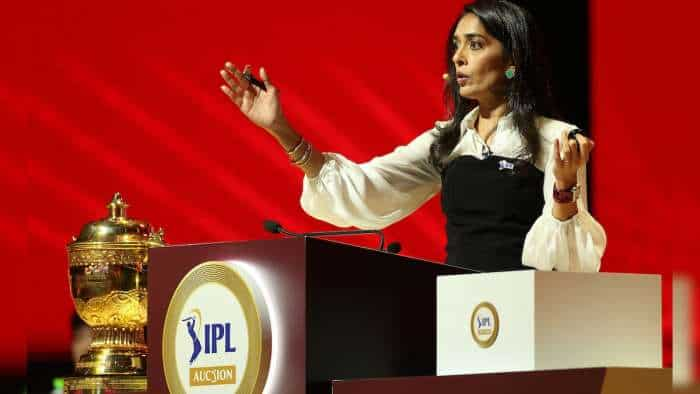Narendra Modi govt needs to shed 'obsession' with economic growth: Jean Dreze
The Narendra Modi government needs to shed its "obsession" with economic growth and take a broader view of what development is about, argues noted economist Jean Dreze

The Narendra Modi government needs to shed its "obsession" with economic growth and take a broader view of what development is about, argues noted economist Jean Dreze. Author of a number of books on development and policies in India, he also feels that the Centre is "abdicating" its responsibilities in many sectors and handing them over to the corporate, or to the state governments. In an interview to PTI, he was asked about the impact of the NDA government's policies on social and economic life of the lower strata of the society and his concerns on the widening rich-poor gap and Aadhaar-based public distribution system.
"The government should shed its obsession with economic growth and take a broader view of what development is about. Economic growth can certainly contribute to development, in the sense of a widely shared improvement in the quality of life, but it does not go very far on its own," Dreze, who served as a member in the former UPA government's National Advisory Council, said. The Belgian-born Dreze, now an Indian citizen, held that development also requires wide-ranging public action in fields like education, health, nutrition, social security, environmental protection, public transport, to name a few.
"The Modi government is abdicating many of these responsibilities and handing them over to the corporate sector in one way or another, or to the state governments. To illustrate, the most important foundation of development is universal quality education. This is evident from recent development experiences around the world, and in India itself," he said.
"Universal quality education is all the more important in India, because of the country's extreme social inequalities. Yet five years have passed without any major initiative in the field of elementary education," he added. According to Dreze, the underprivileged have not had a particularly good time in the last five years and claimed demonetisation hit the financially weaker section. Noting that despite demonetisation, the economy somehow managed to remain close to the trend growth rate of 7.5 per cent around which it has hovered for much of the last 15 years, he said rural wage rates have more or less stagnated in real terms.
"Women's workforce participation also remains very low -- among the lowest in the world," said the author of books like "An Uncertain Glory: India and its Contradictions" and "India: Development and Participation". He said these are two important signs that rapid economic growth is failing to generate adequate employment and income opportunities for the masses. On financial inequality and unavailability of government data in the country, he said this was "just one symptom" of the "deterioration of the statistical" system in India, and of the government's tendency "to suppress inconvenient facts".
"Many other examples can be given. Poverty estimates, for instance, are way out of date, with the most recent official estimates going back to 2011-12," Dreze said. The gap between the last two National Family Health Surveys, in 2005-06 and 2015-16, was as long as 10 years, in comparison with two or three years for other south Asian countries, he said. Dreze, visiting professor at the Department of Economics, Ranchi University, claimed the Modi government has turned its back on social policy.
"There have been no significant initiatives related to education, health, nutrition, social security or related matters in the last few years, with the partial exception of Swachh Bharat Mission, if you ignore its authoritarian aspects. "Even where the government has legal obligations, as with maternity entitlements under the National Food Security Act, there has been no action worth the name. That, too, is bad news for poor people who depend a great deal on public services and social support for their livelihood," he said.
Dreze further claimed that there was no evidence that Aadhaar helps to reduce corruption in the PDS.
"On the contrary, in Jharkhand at least, it seems to have led to more rather than less corruption. One reason for this is that when people fail the biometric test, their food rations are appropriated by the PDS dealers," he claimed. He instead advocated smart cards as a far more reliable technology, already used with good effect in Himachal Pradesh and Tamil Nadu.
Get Latest Business News, Stock Market Updates and Videos; Check your tax outgo through Income Tax Calculator and save money through our Personal Finance coverage. Check Business Breaking News Live on Zee Business Twitter and Facebook. Subscribe on YouTube.
RECOMMENDED STORIES

IPL Auction 2025 Free Live Streaming: When and where to watch Indian Premier League 2025 mega auction live online, on TV, Mobile Apps, and Laptop?

SIP vs PPF: How much corpus you can build in 15 years by investing Rs 1.5 lakh per year? Understand through calculations

SBI Senior Citizen Latest FD Rates: What senior citizens can get on Rs 7 lakh, Rs 14 lakh, and Rs 21 lakh investments in Amrit Vrishti, 1-, 3-, and 5-year fixed deposits
03:53 PM IST








 States can play active role to achieve 'Viksit Bharat@2047’ goal: PM Modi
States can play active role to achieve 'Viksit Bharat@2047’ goal: PM Modi NITI Aayog's Governing Council meeting begins under chairmanship of PM
NITI Aayog's Governing Council meeting begins under chairmanship of PM  Narendra Modi Oath Ceremony Today: Where to watch free LIVE streaming?
Narendra Modi Oath Ceremony Today: Where to watch free LIVE streaming? PM Modi gears up for Bengal blitz with public meetings in key constituencies on May 3
PM Modi gears up for Bengal blitz with public meetings in key constituencies on May 3 LS polls: PM Modi to hold roadshow in Bhopal on April 24
LS polls: PM Modi to hold roadshow in Bhopal on April 24